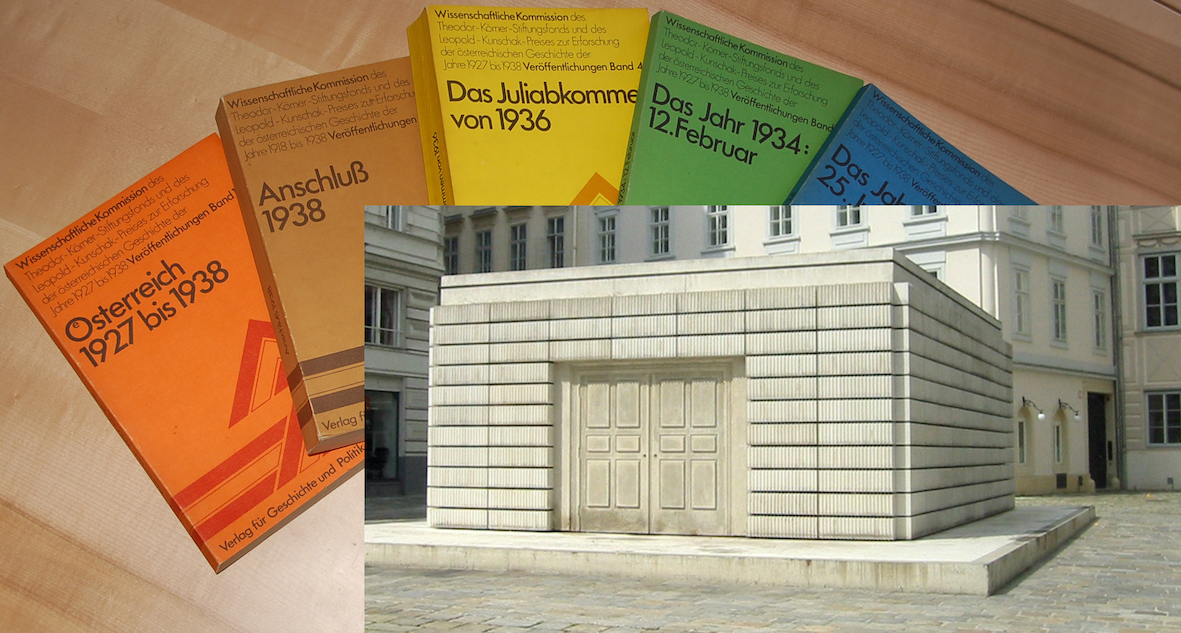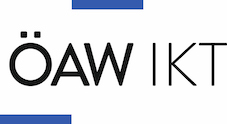VWI invites/goes to...
Cycle of VWI Fellows’ Colloquia
The VWI fellows present their intermediary research results in the context of colloquia which are announced to a small audience and are open to a public audience with an academic and topical interest. The lectures are complemented by a response or commentary by an expert in the given field and are discussed with the other fellows.
Due to the previous lack of an appropriate space, the colloquia were held at other Viennese research and cultural institutions with a topical or regional connection to the given subject. From this circumstance was born the “VWI goes to …” format.
With the move to a new institute building at Rabensteig 3, the spatial circumstances have changed, so that the VWI is now happily able to invite other research and cultural institutions. Therefore, the VWI is now conducting its colloquia both externally and within its own building, in the framework of continued co-operation with other institutions.
The new cycle of fellows’ colloquia “VWI invites/goes to …” is not only able to reach a broader circle of interested persons, but moreover integrates the VWI further into the Viennese scholarly establishment, perhaps even crossing borders into the greater regional research landscape.
| VWI invites/goes to... | |||
| Fredrik Lindström: Organising Austria’s Past: Bruno Kreisky, Herbert Steiner, Simon Wiesenthal and the Institutionalisation of History and Memory in the Second Republic | |||
Wednesday, 16. May 2018, 15:00 - 17:00 VWI Research Lounge 1010 Vienna, Rabensteig 3, 3rd Floor
|
|||
VWI invites the Institute of Culture Studies and Theatre History
Historical commissions and institutes, documentation centres and permanent historical exhibitions were founded or initialized by individuals whose mind set and worldview were formed in the inter-war era and during the Nazi period. These institutions contributed strongly to stabilizing and perpetuating a special Austrian history and memory culture. However, that history and memory culture was not without internal tensions and contradictions. The occasional clash between different understandings of the Austrian past may tentatively be approached as the clashing of “tectonic plates” undergirding Austrian history and memory culture. Commented by Heidemarie Uhl Fredrik Lindström studied History at Lund University (Sweden) and spent a post-doc year at the Institut für Zeitgeschichte at Vienna University. He is at the present Senior Lecturer of European Studies at Malmö University. Among his publications are Empire and Identity: Biographies of the Austrian State Problem in the Late Habsburg Empire, West Lafayette, 2008; Imperial Heimat: Biographies of the ‘Austrian State Elite’ in the Late Habsburg Empire, in Tim Buchen & Malte Rolf (eds.), Eliten in Vielvölkerreich/Elites and Empire, Imperial Biographies in Russia and Austria-Hungary (1850-1918), Berlin/Boston, 2015. Heidemarie Uhl is a senior researcher at the Austrian Academy of Sciences in Vienna and lecturer at the University of Vienna and the University of Graz. She is among others a member of the Austrian Delegation to the IHRA and vice chairperson of the scientific board of the Haus der Geschichte Österreich. She is currently directing the project Reconceptualization of the Austrian Hero’s Monument. Please register at This email address is being protected from spambots. You need JavaScript enabled to view it. by latest Tuesday, 12.00 am and bring your ID. |
|||







 Drawing on a biographical perspective on the influence of a few important in- dividuals for the shaping of Austrian Post-War history and memory culture, the focus of the presentation will be on institutionalized forms of dealing with the Austrian past, foremost in the pe- riod 1960-1988.
Drawing on a biographical perspective on the influence of a few important in- dividuals for the shaping of Austrian Post-War history and memory culture, the focus of the presentation will be on institutionalized forms of dealing with the Austrian past, foremost in the pe- riod 1960-1988.
